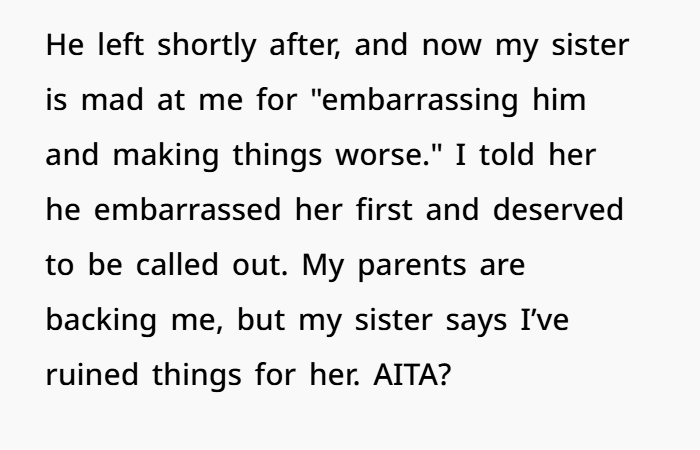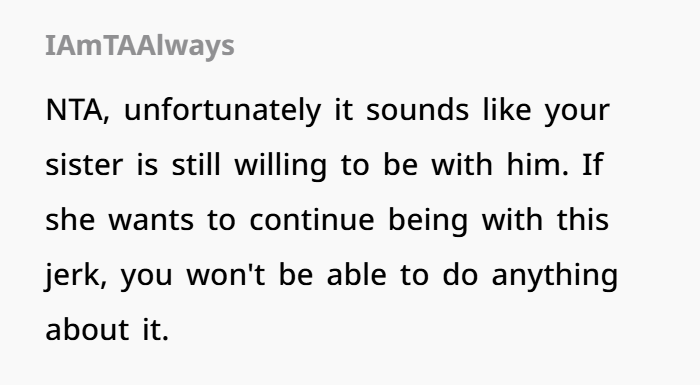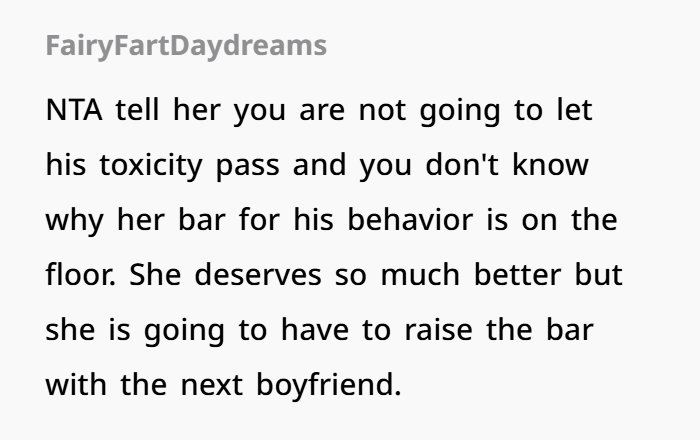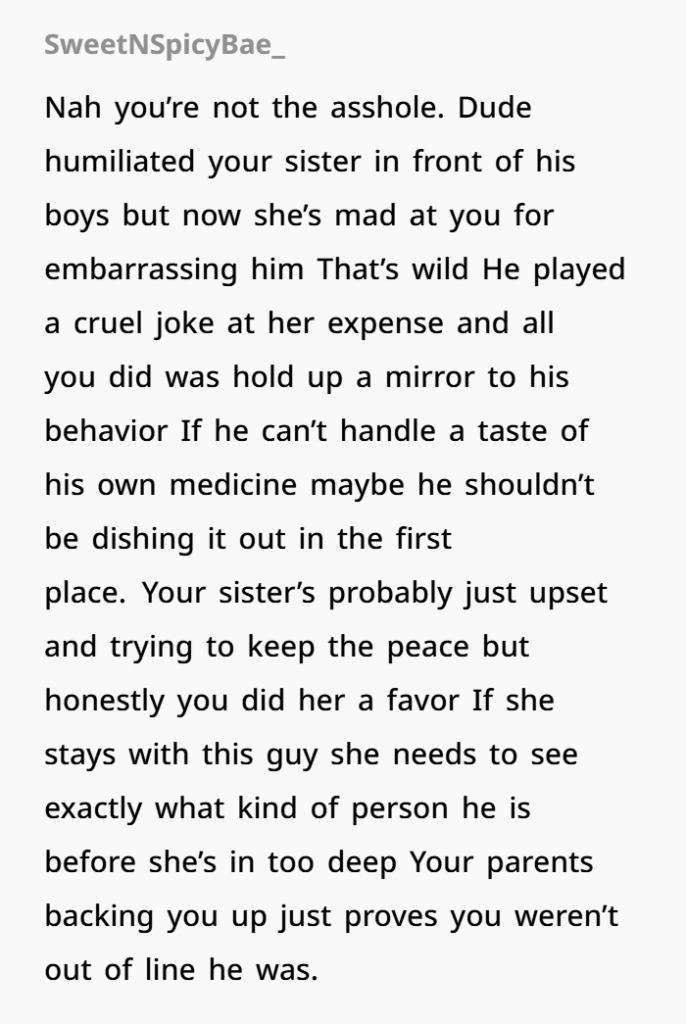‘AITA for humiliating my sister’s fiancé at a family gathering after what he did to her?’
In this emotionally charged situation, OP (Original Poster) describes the strained dynamics between their sister and her fiancé, culminating in a family confrontation. The sister (28F), a quiet and reserved individual, has been engaged to her extroverted and often insensitive fiancé (32M) for three years. Tensions reached a peak after the fiancé executed a cruel “prank” — staging a fake public proposal in front of his friends, only to humiliate her by admitting it was a joke. Understandably, the sister was devastated but, to OP’s frustration, chose not to break off the relationship.
The emotional wound resurfaced during a family dinner when the fiancé made another dismissive comment about their future marriage. Unable to stay silent, OP called out his prior behavior in front of everyone, sarcastically reminding him — and the entire table — of his cruel prank. The fiancé was left humiliated, the parents sided with OP, but the sister lashed out, claiming OP made things worse by “ruining” her relationship. Now, OP wonders if publicly shaming him made them the villain in this story.
Read for more info Reddit







🚩 Public Humiliation and Power Dynamics in Relationships
Public pranks — especially those involving deeply emotional moments like marriage proposals — can cross into emotionally abusive behavior when used to assert power or control. According to Dr. Jennifer Freed, a psychologist specializing in interpersonal relationships, “Humiliating someone in public, particularly a loved one, is not playful; it’s an exertion of dominance meant to control emotional responses” (Psychology Today, 2021).
In this case, the fake proposal wasn’t just a tasteless joke — it weaponized a vulnerable moment. Research shows that mocking or dismissing a partner’s emotions is a key predictor of long-term relationship dissatisfaction and even eventual breakdown (Gottman Institute, 2017).
💍 The Problem with ‘Proposal Pranks’
Fake proposals have become a controversial trend on social media, often garnering millions of views but rarely considering the emotional impact on the recipient. A 2020 study from the Journal of Personal and Social Relationships highlights that “public relationship pranks can undermine trust and security, leading to increased anxiety and resentment in the ‘pranked’ partner.” The sister’s reaction — heartbreak and tears — aligns perfectly with these findings.
More seriously, using marriage — a culturally and personally significant event — as the butt of a joke trivializes the relationship’s foundation. Marriage proposals represent a deep commitment; faking one publicly erodes that meaning, often leaving the victim questioning the relationship’s sincerity.
🛠 Calling Out Toxic Behavior: Justified or Harmful?
Social accountability is a growing theme in family systems research. While calling out toxic behavior publicly risks “embarrassing” someone, it can also serve as a protective intervention. According to Dr. Ramani Durvasula, a clinical psychologist and narcissism expert, “Enabling toxic behavior by staying silent is how emotional abuse cycles continue. Sometimes public accountability is the wake-up call abusers need.”
However, psychologists warn that the fallout from public confrontations can strain relationships with the very people you’re trying to protect — in this case, the sister. Victims often side with their abuser due to trauma bonding, a phenomenon where emotional manipulation creates loyalty to the very person causing harm (Stosny, 2019).
Here were the top rated comments from readers in response to the OP’s post:














OP’s actions — while harsh — were grounded in righteous anger and a protective instinct. By publicly calling out the fiancé, OP forced the family to confront the emotional abuse that had been swept under the rug. Given that even the parents backed OP, it’s clear the behavior was indefensible.
However, the sister’s anger reveals the complex emotional web victims of manipulation can get caught in. She may perceive OP’s outburst as jeopardizing her already fragile relationship rather than exposing the real issue: her fiancé’s cruelty.
In conclusion, NTA (Not the Asshole). Public humiliation was the only language this man seemed to understand, and OP did what many would be too afraid to do — defend a loved one when it mattered most. Still, the sister may need time and support to process her feelings and, hopefully, see her fiancé’s behavior for what it is: a massive red flag.



